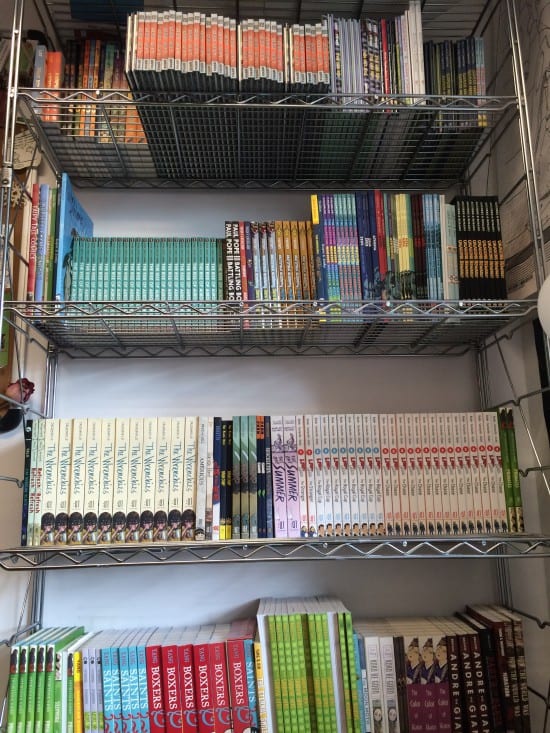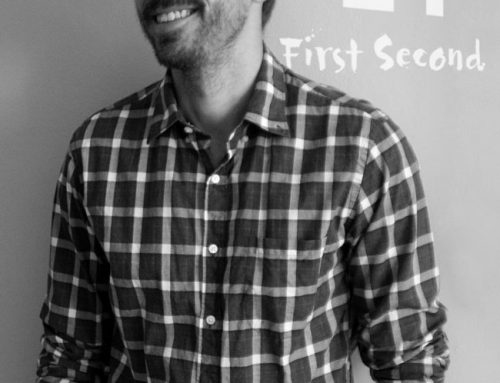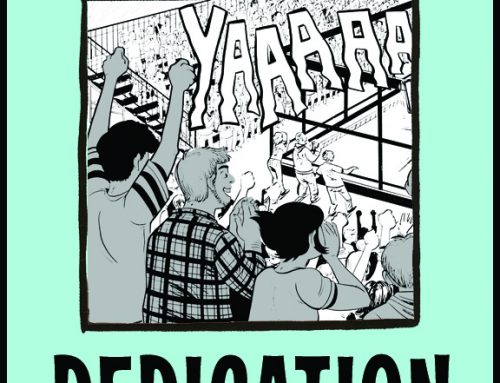test heading
(here is a photo of my bookshelf at the present time, which is actually a moderately reasonable representation of our publishing, though of course many books are omitted for purposes of being on the bottom of the bookshelf behind some boxes)
Publishers really want to publish books. It’s practically the whole reason for our existence. We all love books and think they’re awesome. And we read them and review them and edit them and work with writers and illustrators to foster their careers and then we also publish a whole lot of books.
But to a lot of aspiring writers and illustrators, it can seem like publishers are gatekeepers who are basically doing everything they can to keep books from getting published. This tends to be incorrect (because as previously mentioned, here we are trying desperately to publish books with all 100% of our time!), but why the misapprehension?
Here are four reasons why this may be confusing.
Deciding whether to publish a book is not as easy as one, two, three.
Sometimes we’ll get a book submission; we’ll e-mail acknowledge we received it and the response will come right away: ‘so, will you publish it?’
Even though we only have four staff people, we want to talk to all of them about the book: can they take some time and read it? Do they like it? Do they have thoughts about how to publish it well, or about things that may be issues? After that, we want to talk so some people at our parent company — our publisher, our sales staff. Do they all like the book? Do they think it will work well for our company?
And all of that is after the editor reads the book and thinks about the book and then reads the book again and then does some research on the author’s background and previous books and possibly reads all of those and thinks about how this could fit into the company’s publishing schedule and the author’s body of work and what exciting things our particular publisher could bring to the table that’d make the book super-amazing and make the author excited to work with us.
Also, math! How much would we pay for the book? How much would the production for the book cost? How are those balancing — do we think we could pay enough to make back the advance and pay for the production and hopefully then make some money for both the author and the publisher?
By then, at the very least, several weeks have passed. In some cases, several months have passed.
When we decide to publish a book, it’s a commitment of thousands of dollars and years of time from our publisher and our staff, and those are decisions we like to take some time with! You may know when you’re submitting a book that it’s completely and totally fantastic and a perfect fit with this publisher — but the publisher has to take some time and be sure of that too.
Publishing (like any industry) involves a whole lot of tasks that are mostly invisible to the outside observer, but which still take up a great deal of time.
There are a finite amount of hours in the day. (Corollary: publishers have a finite amount of staff.)
Publishers are only able to publish so many books. This year, First Second is publishing twenty-two titles. We have four staff people at our company; this is literally all we have hours in the day to deal with right now. Because of that, there are books that we may pass on because we already have a lot of books in the pipeline and we can’t actually fit this new project in our schedule without people forgoing sleep and weekends and authors still having to wait six months for editorial notes.
Besides reading books and deciding whether to publish them, our staff also has to edit the books, design the books, market the books, sell the books, and do all sorts of extraneous activities like getting blurbs, organizing author tours, creating series logos, mentoring younger staff members, keeping up with industry news, taking authors and agents we work with or want to work with in the future to coffee or drinks or lunch, going places to speak about how great our publisher is, exhibiting at conventions, keeping an eye on anthologies and the internet and mini-comics to watch for emerging talent; going to company meetings to figure out things like how we will price and schedule and design and market and sell our books; communicating with company staff about all book developments; e-mailing authors and agents to explain to them all of the things going on with their books, producing book-related materials like catalogs, samplers, and buttons, and more.
Since we don’t work in a glass bubble, to someone who is waiting for their book to be read and considered for publication, it may seem like (and feel like) time is crawling by. And during those days or weeks or months, if they were doing nothing else, a publisher could have certainly read and reviewed the book and made a decision about whether to publish it. But during that same time period, a publisher could be like, ‘I went to conventions for half the month and didn’t have time to read anything because when I was back in the office, all I did was catch up on the books I’m already working on!’
A book can be a great book — but that doesn’t necessarily mean that a publisher will be able to publish it.
Sometimes we get in submissions and we really like them. And then we’re like, ‘wait, we just acquired a trilogy about a cave girl for kids ages 6 – 9. There’s no way that we can also publish this trilogy about a cave boy for kids ages 7 – 10, too.’
And then sometimes we’re like, ‘this seems like a great book. It’s a really really great book. Whoever’s going to publish this book has something really good on their hands.’ And then we’re like, ‘because of format/content/audience, this book won’t work at all with our publishing program.’
These are very vague hypothetical examples, but they’re not ‘once in a blue moon’ sort of happenstances. Publishers really do have all sorts of editorial concerns going on behind the scenes that you may not know about or be able to figure out that can prevent them from buying a book that they like a whole lot and would under other circumstances publish. Sometimes those factors can be obvious — for example, if a publisher publishes all their books in a standard trim size of 6 x 8.5 and the book under consideration is a foot high and can’t be reduced at all, that’s a clear possible issue, even if that book is 110% awesome. But something like, ‘we just acquired two different books about the Holocaust so we can’t publish this new one, even though it’s great’ isn’t something an author could ever know beforehand!
Publishers want to publish really, really good books.
Most people who got into publishing didn’t read a terrible book and then say, ‘this! I want to make a career out of producing things that are just like this!’ Instead, they tend to have had experiences like, ‘This Dorothy L. Sayers author is really amazing — I read this Nicola Griffith novel and it changed my life — Jo Walton’s book made me think about history in a whole new way.’ And then they decide that they want to be part of that process, and that that caliber of books is what they want to be working with.
Those a great origin stories! But if you are a new author working on your first book, those can pretty high standards to live up to. Do not despair: editors are professionals at seeing something with potential and nurturing it, so not everything has to be Pulitzer-winning perfect with your first novel. But with anyone who loves reading, and loves books, there are probably some favorites that they hold everything against — and it can be a challenge to write something that hits those standards. The last reaction you want to your first novel is for someone to read it and say, ‘oh, this was such a first novel.’ You want to create book that stands up to the best things that the publisher is publishing — and in almost every case that can be some pretty intimidating writers and artists.
If you’re a writer/illustrator who is submitting your book to publishers, it’s good to keep these things in mind during the whole process so as not to get too discouraged! It may take some time, but you’ll find the right book — and the right publisher.





